A media player can have a variety of properties (properties) that provide more functionality to your applications. Appropriate control of volume, speed, and balance gives users more control over audio playback. In this tutorial, you will learn how to implement and customize the properties of a media player in JavaFX. This is done by using sliders, which allow you to easily control your application's sound settings.
Key Insights
- The use of properties in the JavaFX media player simplifies the control of properties such as volume, playback speed, and balance.
- By binding sliders to the respective properties, you can create a dynamic user experience.
- The implementation of sliders requires only basic knowledge of JavaFX and the ability to set their properties.
Step-by-Step Guide
First, we want to customize the media player and add extra features. We start by creating the necessary sliders to control the media player properties.
Step 1: Creating the Volume Slider
First, you need to create a volume slider that handles the media player's volume. You create a new slider and define its value range between 0 and 1. The default value should be 0.5.
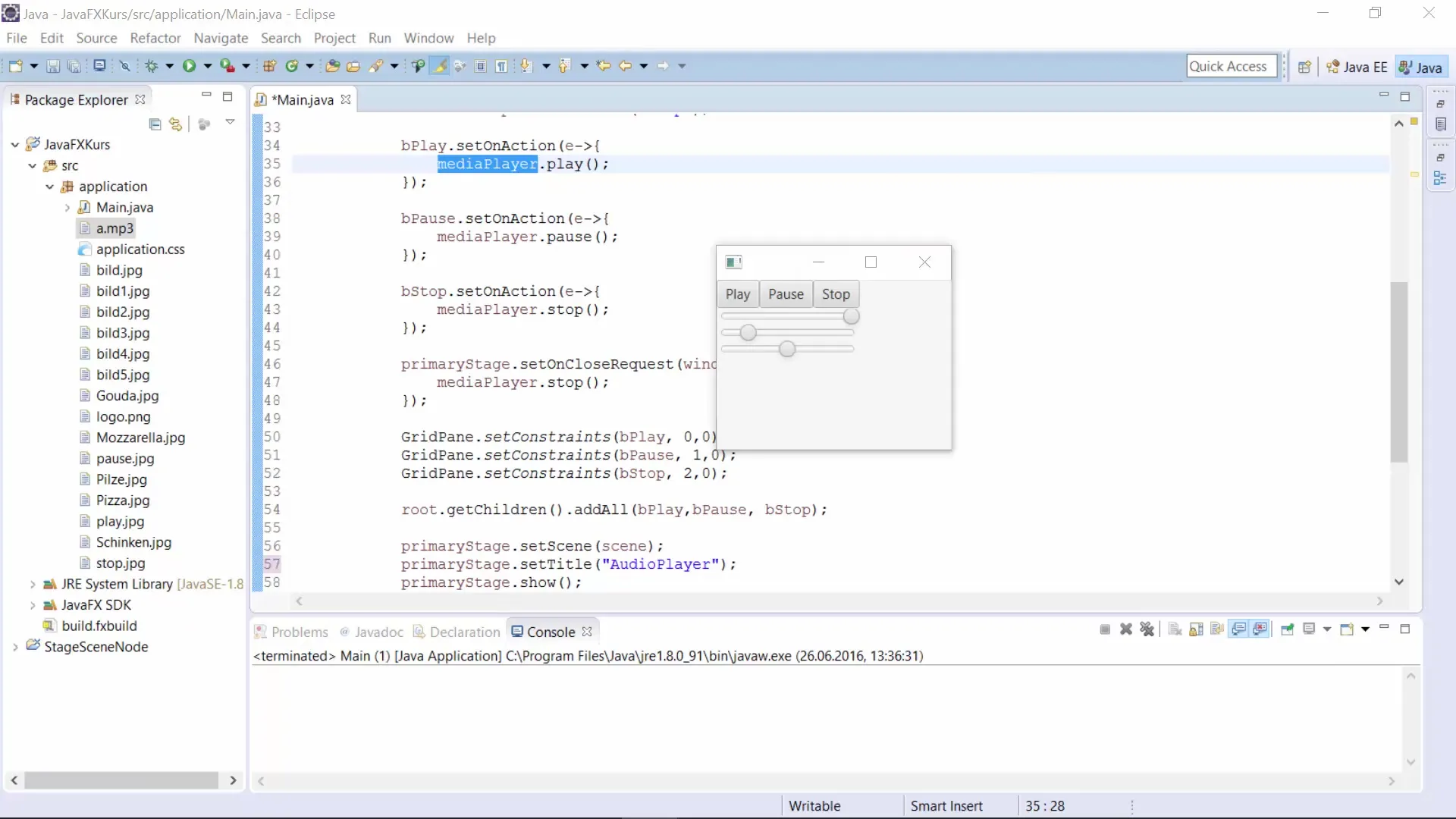
Now import the volume slider and connect it to the volume property of the media player. This is done using the bind function, which allows you to directly link the slider's value with the media player's volume.
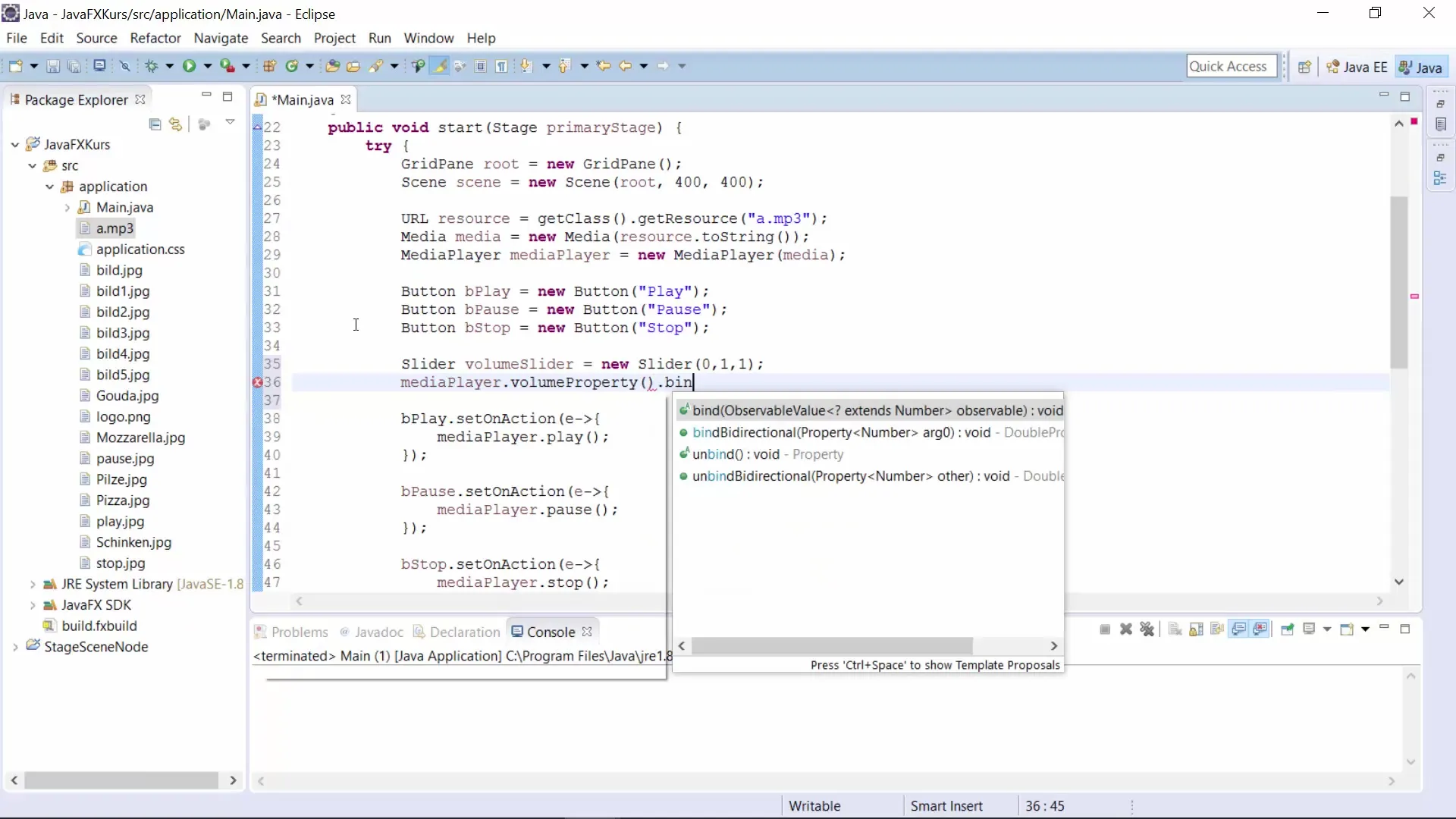
Step 2: Creating the Rate Slider
The next step is to create a rate slider that controls the speed of audio playback. Here, you also set up a slider that accepts values between 0.5 and 5, with 1 being the default speed.
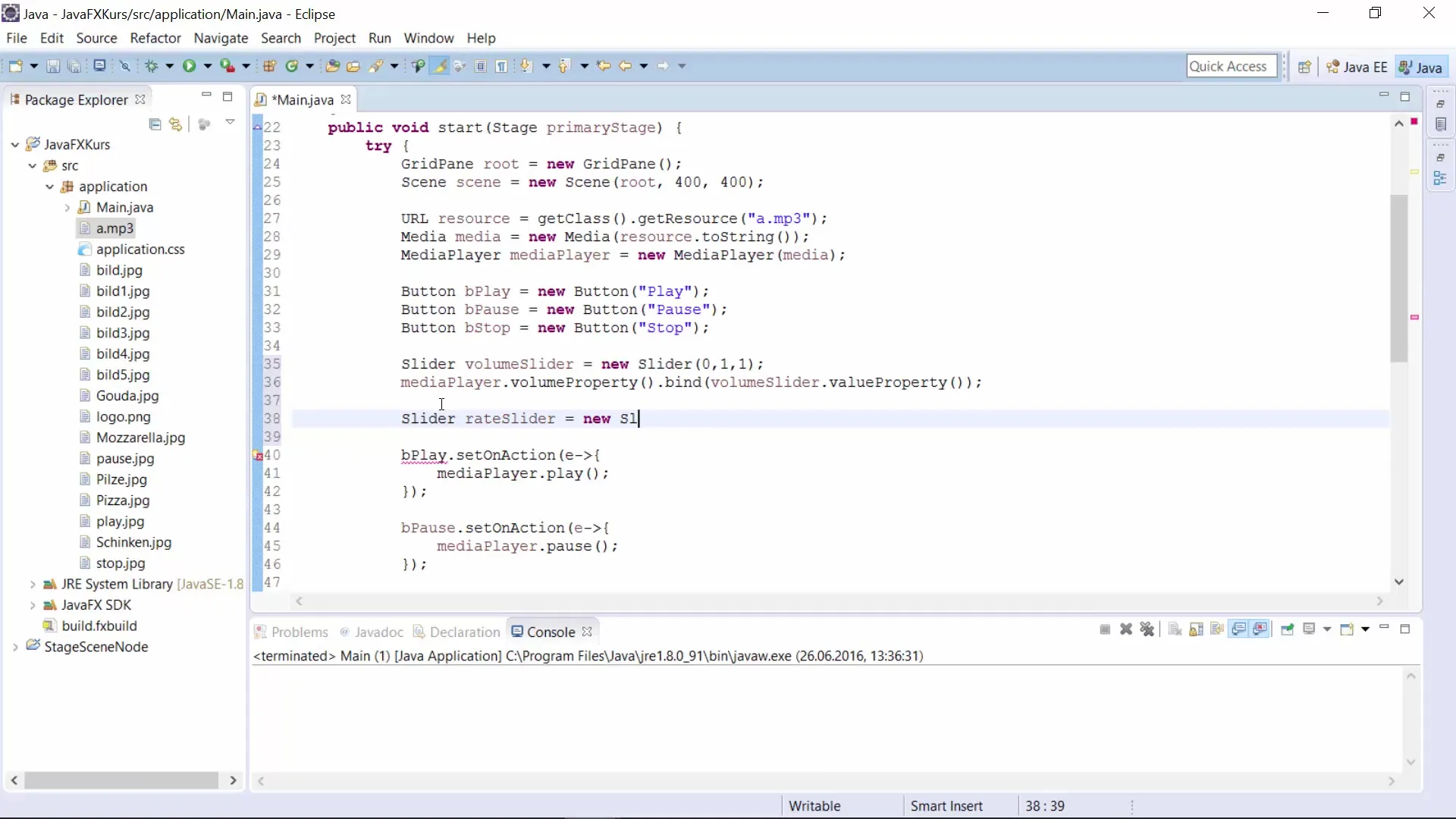
You also need to connect this slider with the rate property of the media player. Using the bind function, you bind the value of the rate slider to the media player's rate property.
Step 3: Creating the Balance Slider
Once the volume and playback speed are configured, it's time to create the balance slider. This slider allows you to balance the sound between the left and right channels.
Here, you create a slider that can take values from -1 (fully left) to 1 (fully right), with a value of 0 meaning that both channels are equally loud.
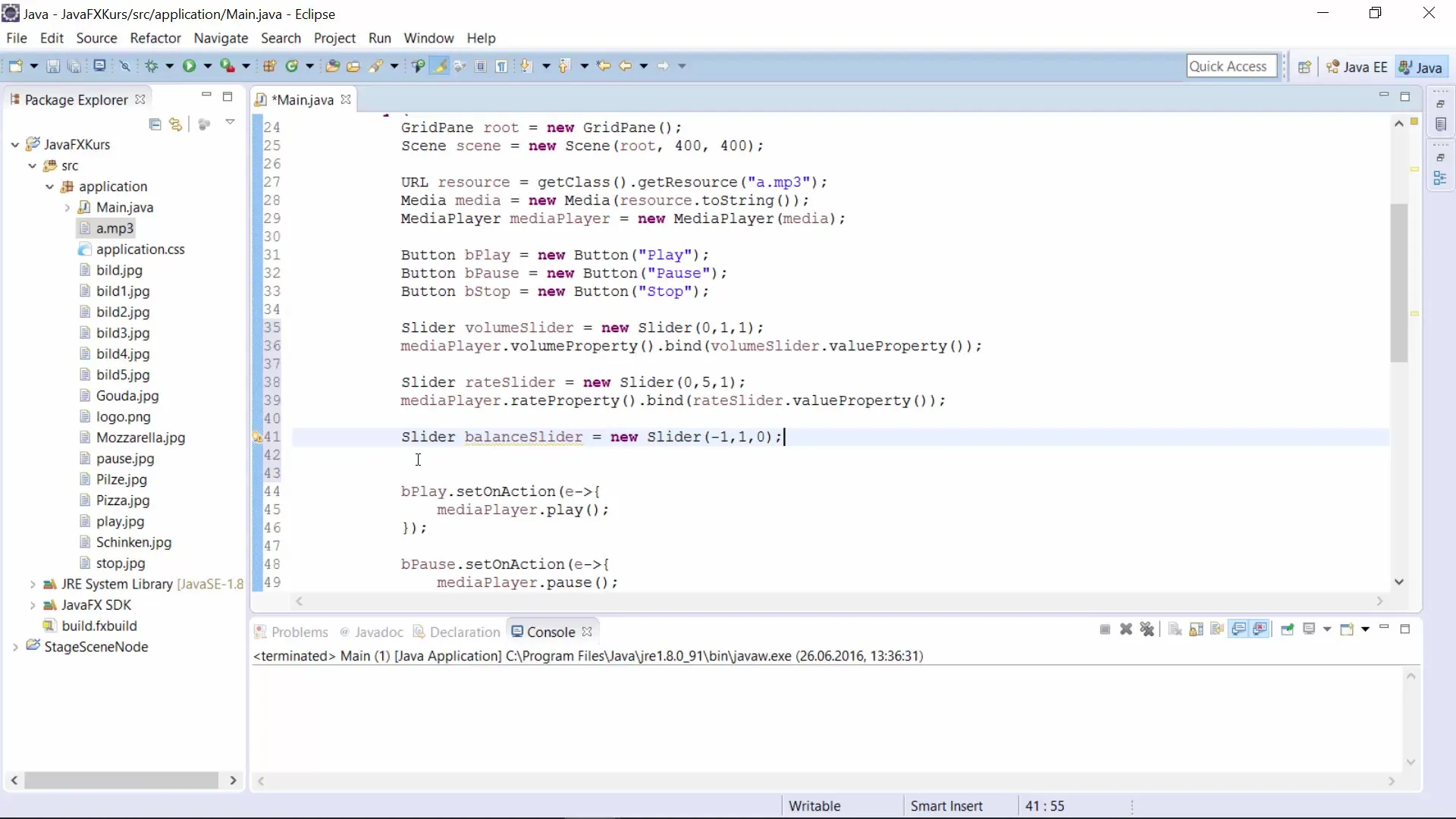
Now connect this balance slider to the respective balance property of the media player as well. Again, this is done through the bind method.
Step 4: Inserting the Sliders into the GridPane
Now that you have set up all three sliders, you need to insert them into the GridPane of your user interface. Position them in the first three columns and ensure they have adequate width.
Here, you can use the method gridpane.setColumnSpan to change the width of the sliders and give them more space.
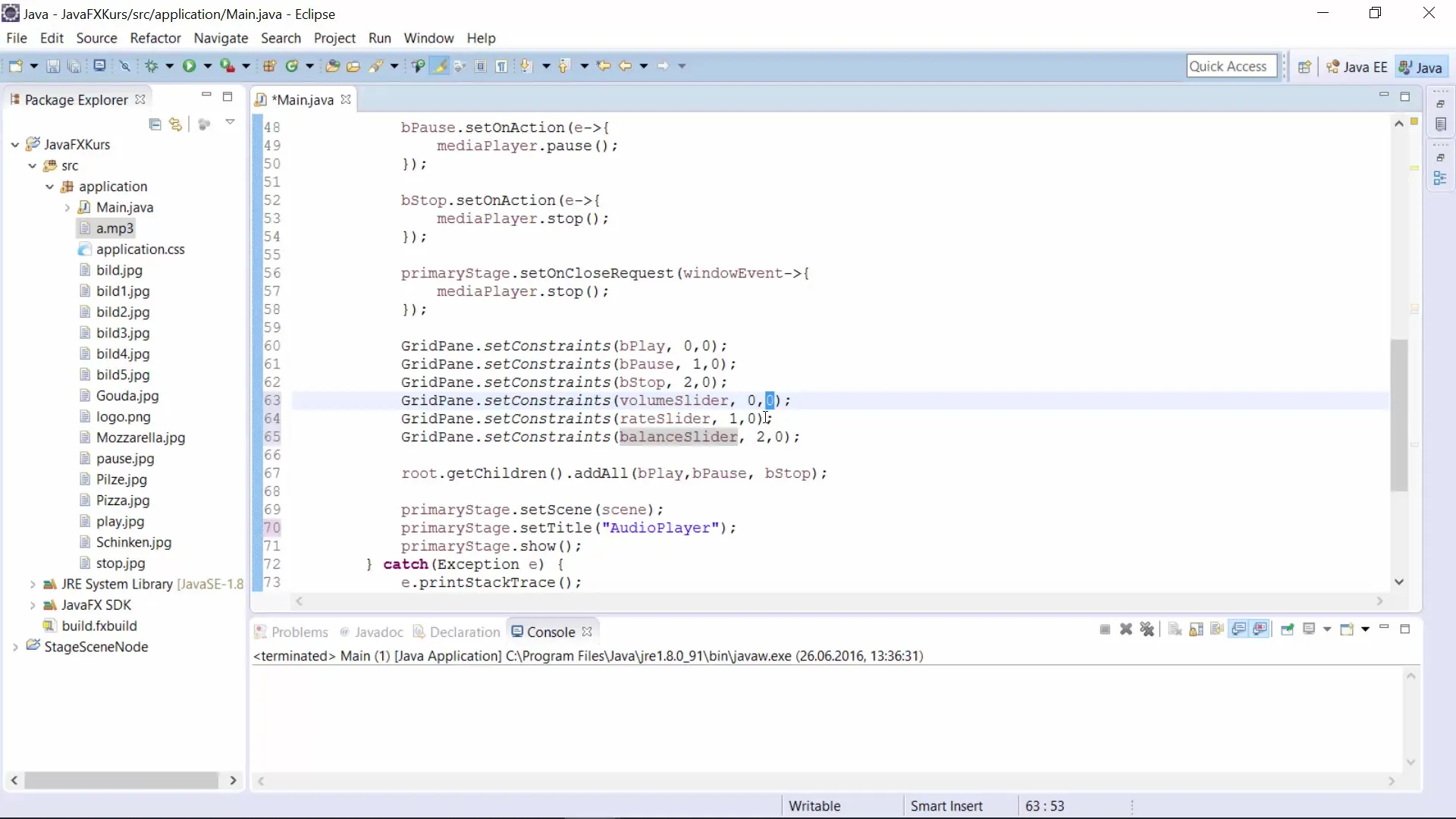
After positioning the sliders accordingly, you can now test the application. Ensure you insert the necessary audio file to fully test the functions.
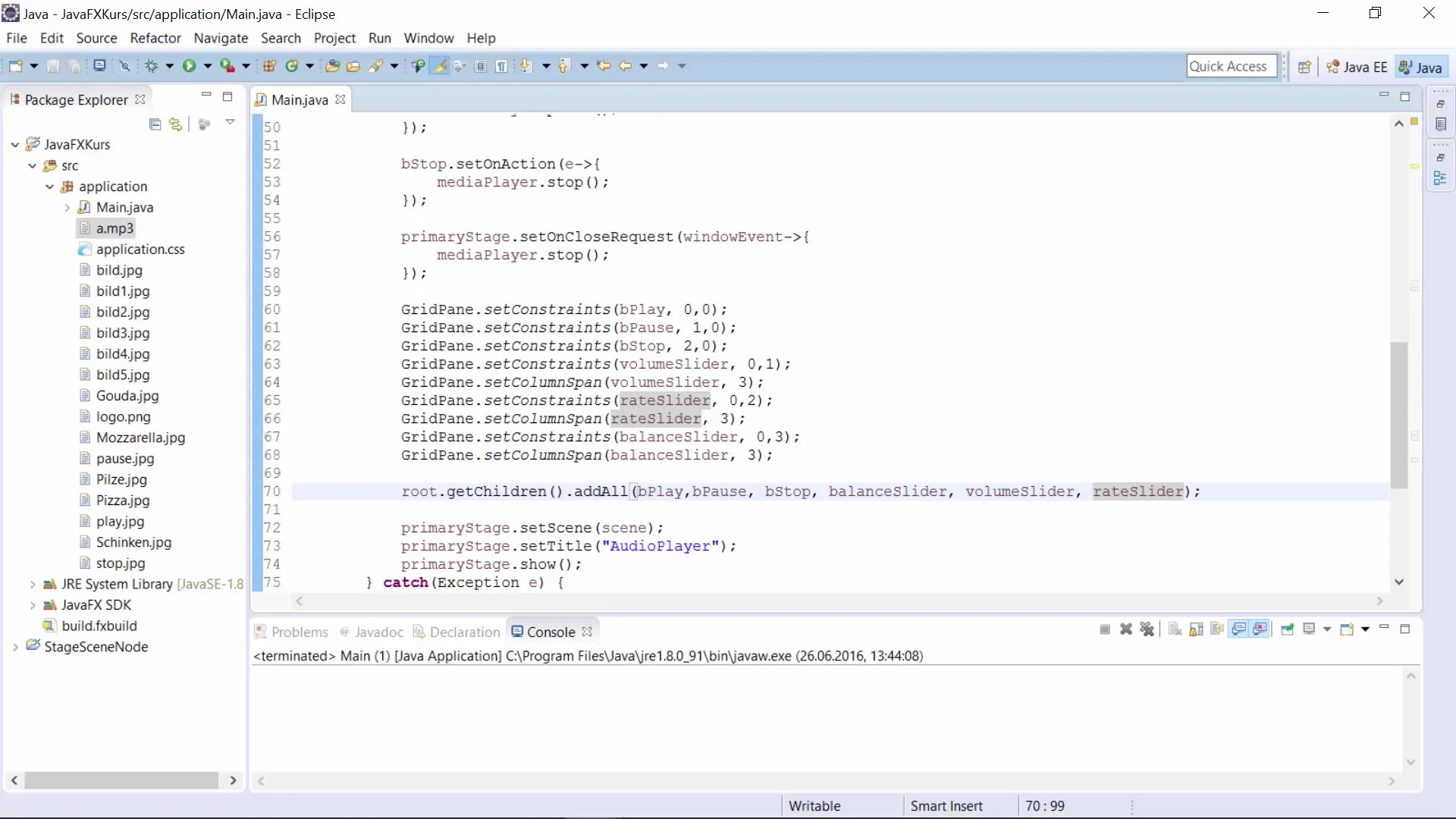
Step 5: Testing Audio Playback
If everything went well, your media player should now be operational. Launch the application and check if you can successfully change the volume, speed, and balance of the audio output.
Motivate yourself to try different audio files and observe how the sliders affect playback.
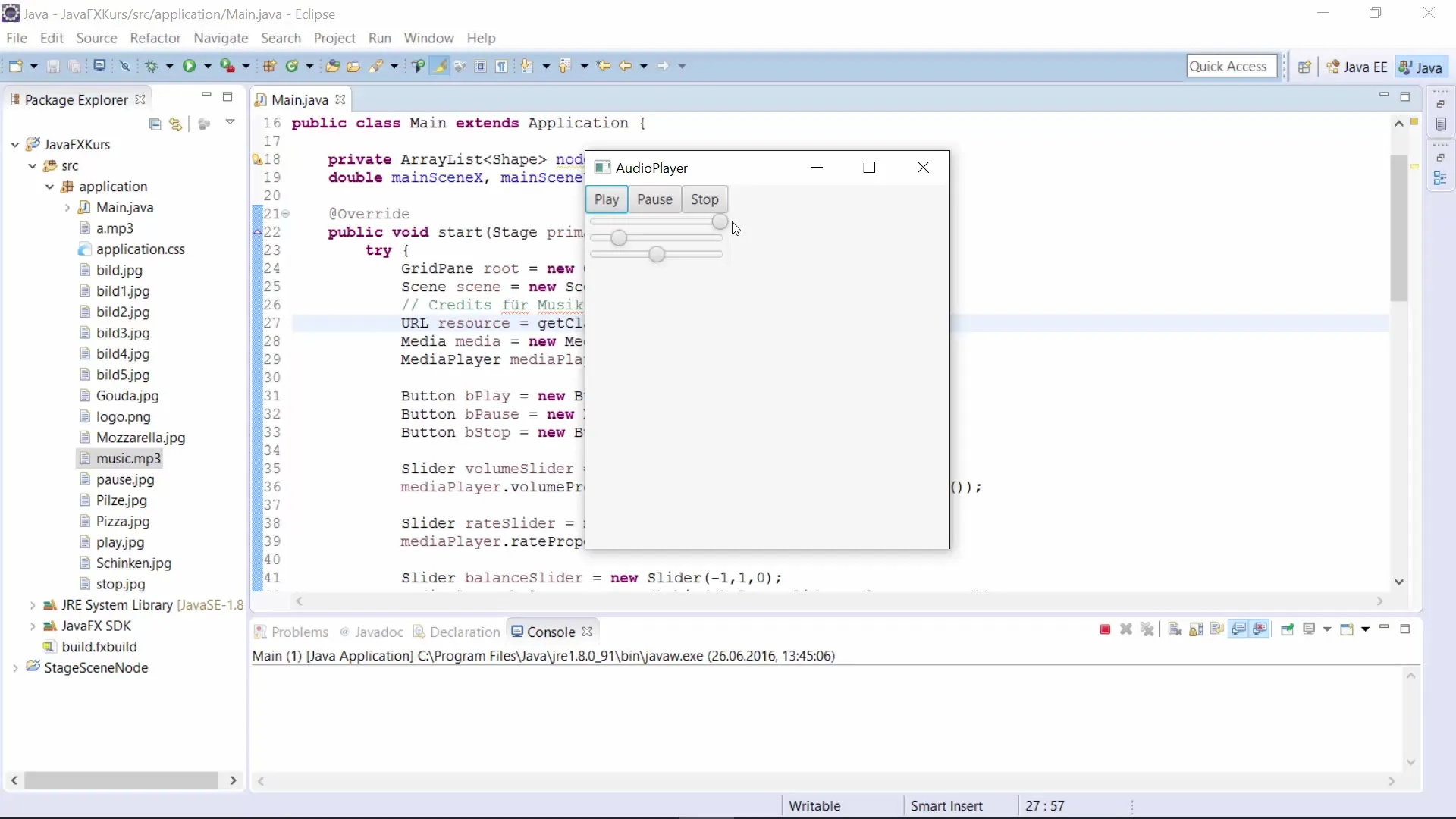
Summary – Customizing Media Player Properties in JavaFX
In this tutorial, you have learned how to use JavaFX and set up slider elements to adjust properties such as volume, speed, and balance of your media player. Thanks to the binding possibilities, changes to the properties can be made directly from the interface, creating a great user experience.
Frequently Asked Questions
How can I insert the media player into my JavaFX application?You can insert and initialize the media player using the Media and MediaPlayer classes in JavaFX.
What happens if I don't connect the slider correctly with the property?If the connection is not made correctly, the slider will not respond to changes and thus will not affect the media player.
Can I control more than just these three properties?Yes, the JavaFX media player class offers many more properties that you can also control.
Are the sliders responsive?Yes, the sliders are interactive and respond immediately to user input once they are connected to the media player's properties.## ##


